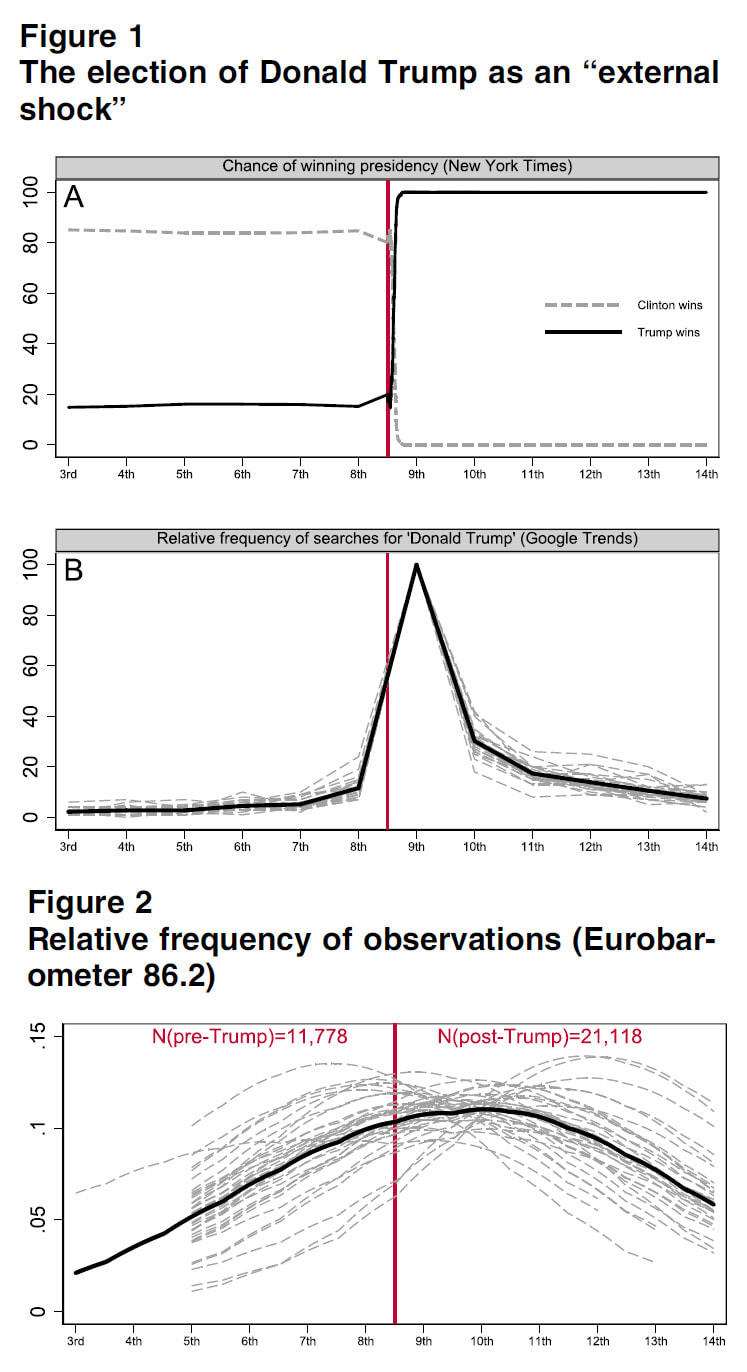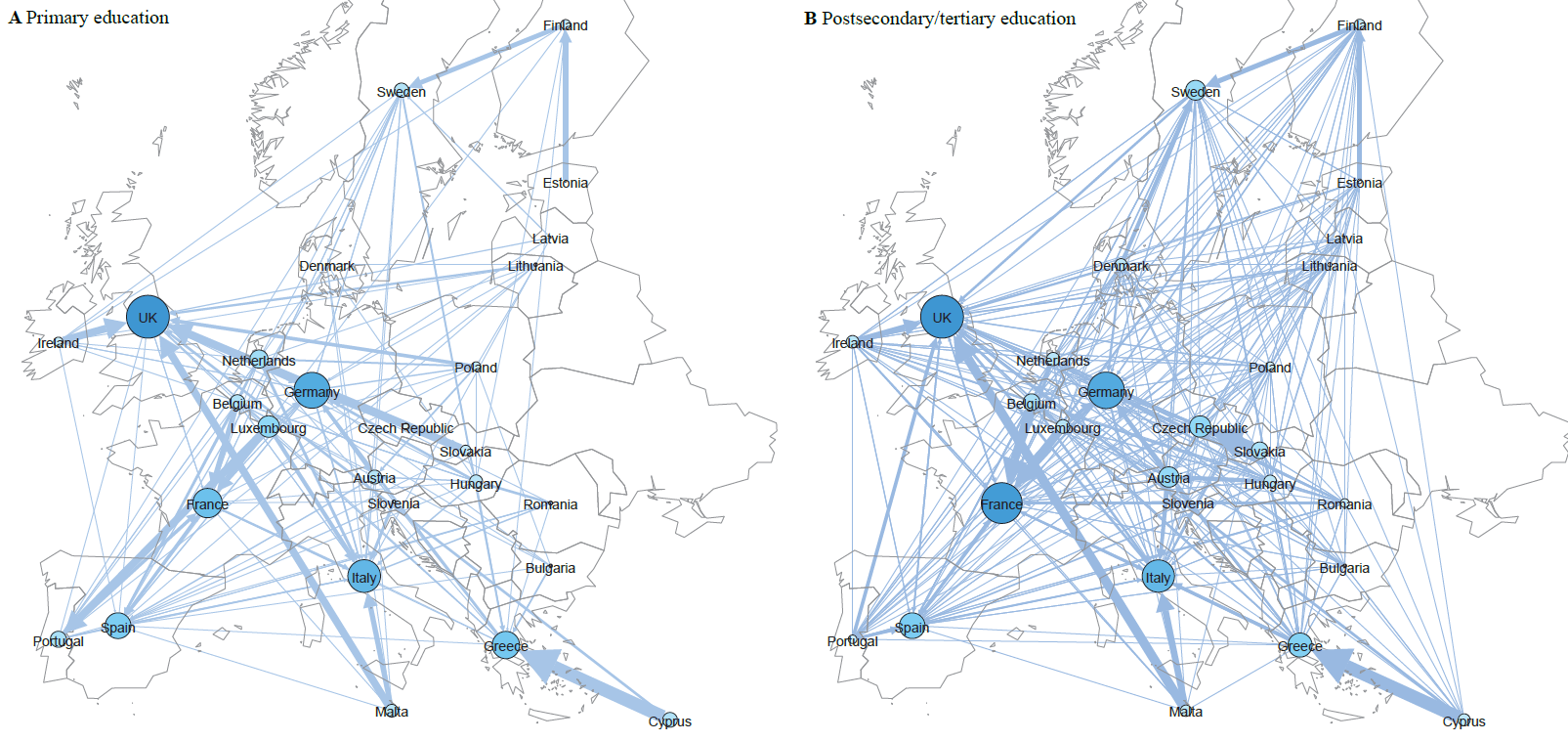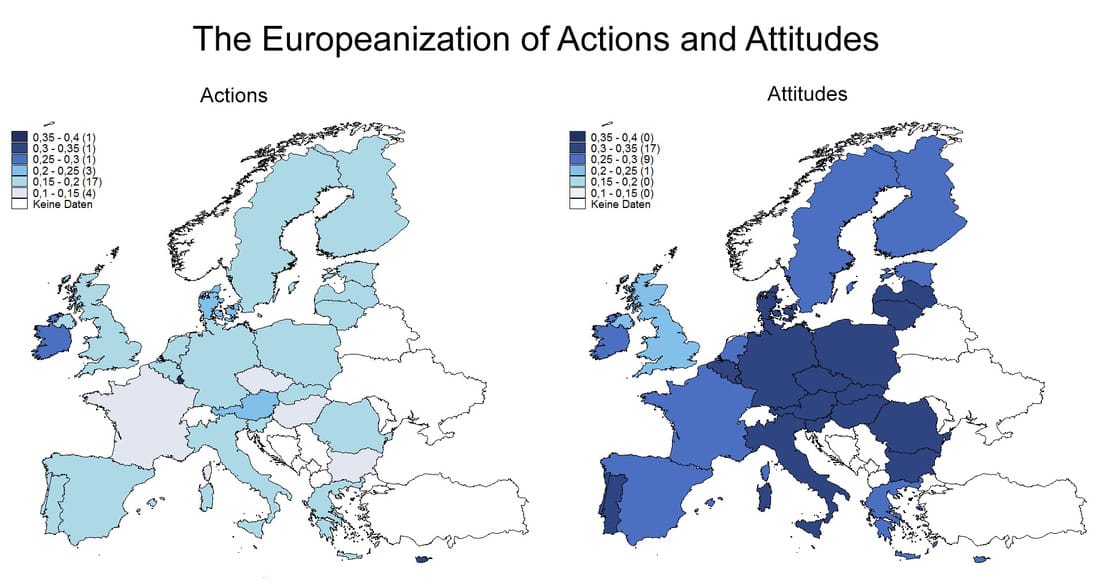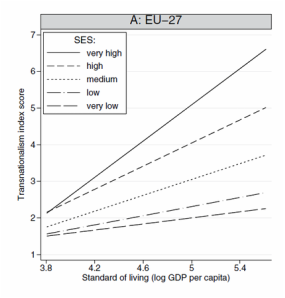| The article "A Trump Effect on the EU's Popularity? The U.S. Presidential Election as a Natural Experiment", co-authored with Lara Minkus and Jan Delhey, is now published online-first at Perspectives on Politics. In the paper, we treat Trump's unexpected victory as an external shock and use a Eurobarometer survey that was conducted in all EU-28 member states four days prior to (control group) and six days after the election (treatment group) as source material for a natural experiment. The analysis reveals that the election of Trump caused a significant increase in the EU’s popularity in Europe immediately after the election. This “Trump effect” is considerable in size, roughly equivalent to three years of education. Gains in popularity were particularly high among respondents who perceived their country as economically struggling and, surprisingly, among the political right, suggesting that Trump’s victory broadened and ideologically diversified the EU’s base of support. We also show that no such effect occurred when Obama was re-elected as U.S. president in 2012. The article can be freely accessed here. A blog post summarizing the main findings has been published at the London School of Economics's United States Politics and Policy blog. |
|
The paper "The Power of Contact: Europe as a Network of Transnational Attachment", coauthored with Jan Delhey, Monika Verbalyte, and Auke Aplowski, has just been published online first at the European Journal of Political Research. A free pre-print version is available here. In this article, we propose transnational attachment as a novel indicator of sense of community in Europe, arguing that this hitherto neglected dimension is substantially and structurally different from alternative ones such as cross-border trust and identification. Combining Eurobarometer 73.3 data on ties between all EU-27 countries with further dyadic data, we show empirically that the European network of transnational attachment has an asymmetric core-periphery structure centered around five extremely popular countries (the UK, France, Germany, Italy, and Spain). In line with transactionalist theory, cross-border mobility and communication are strongly related to transnational attachment. Furthermore, we demonstrate that the network of transnational attachment is much denser among those with a higher than among those with a lower level of education. Our results suggest that offering European citizens incentives to travel to peripheral countries may help counterbalance the current asymmetric structure of transnational attachment, thereby increasing Europe’s social cohesion.
"On the Europeanization of Actions and Attitudes: A Macrosociological Comparison of the EU Member States", a paper co-authored with Jan Delhey, has been published (in German) at Berliner Journal für Soziologie in a special issue on Horizontal Europeanization edited by Christian Lahusen and Susanne Pernicka.
On Friday July 10th 2015, I will give a talk at the GESIS Eurobarometer Symposium Four Decades of Surveying Europe – Perspectives on Academic Research with the European Commission’s Eurobarometer Surveys about our experiences in doing research on transnational activity and European identity with Eurobarometer survey data in the DFG Project Cross-border Interactions and Transnational Identities (PI: Prof. Jan Delhey).
Please see this announcement for details and this Call for Posters if you are interested in presenting your own work at the symposium.
|
Categories
All
Archives
November 2023
|




 RSS Feed
RSS Feed